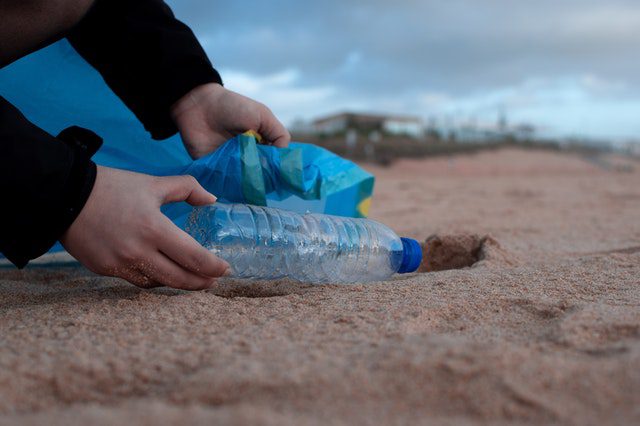How Does Recycling Help The Environment?
With the world waking up to the devastating effects our lifestyles are having on the planet, recycling programs are on the rise for many organisations. Recycling rates were reported to be 45.5% in 2019 in England, which means that a huge half of all recyclable waste produced is being disposed of incorrectly.
Recycling is known as one of the top ways you can help save the environment, and is reducing the amount of waste polluting our planet. Not only is recycling helping us improve sustainability, but it is also saving people money on waste collections and landfill taxes, whilst opening up more green jobs across the world.
In this article, we are going to explore the top 5 benefits presenting how recycling helps the environment, and just how much the world is suffering from incorrect waste management.
5 Benefits Of Recycling On The Environment
Reduces Emissions Of Greenhouse Gases
One of the top benefits of recycling is the huge reduction in greenhouse gas emissions, such as carbon dioxide and methane gas which are speeding up the rate of climate change. One area this is caused is during the production and incineration of waste. In 2019, the production and incineration of plastic emitted the amount of greenhouse gas equivalent to 189 five-hundred-megawatt coal power plants. Manufacturing products such as plastic bottles by using recycled materials emits considerably less gas emissions from using virgin materials. This is through less energy needed during production.
Saves Raw Materials
Conserving natural resources is essential to securing a sustainable future. The consumption of raw materials is moving at a fast pace, to which the environment is experiencing the devastating impact. This could be in the form of cutting down trees for paper, or extracting materials from the earth during mining or quarrying for items such as glass bottles. Extracting these materials also creates a large amount of air and water pollution. The four main types of water pollution from mining taken from SDWF include acid mine drainage, heavy metal contamination & leaching, processing chemicals pollution, and erosion and sedimentation.
Saves Energy
Creating new products from recycling aluminium uses 95% less energy than making it from scratch, with steel saving 70%. These monumental statistics show the large energy savings we can make by correctly managing our waste streams. Not only does this energy created contribute to carbon emissions, but it also pollutes the areas we are living in. Toxic air pollution is affecting many areas across the world and more directly our health, from the burning of fuels like coal, gas, and oil.
Diverts Waste From Landfill
Effective waste management will ensure that waste is being segregated from your recycling bins and main bin, diverting unnecessary waste from ending up in landfill. Whilst our rubbish festers here, high levels of toxic gases are emitted whilst seeping into the earth. These toxins then damage the ground, whilst entering our own waterways and food chain. Because of the huge amount of condensed waste ending up in landfill, the materials take even longer to decompose; posing further threats to delaying the process and emitting further toxins.
Along with waste items such as plastic, our food waste which ends up in landfill will emit a huge amount of methane gas as it decomposes. This is actually more harmful than carbon dioxide on speeding up global warming.
Saves Wildlife
As recycling saves energy and pollution to the planet, wildlife is protected from being exposed to these toxins. They are also directly saved from waste finding its way into their habitats from transportation, in landfills, or by being littered. Recycling plastic has become a clear cry for over recent years, with every year the equivalent of five garbage bags full of trash being dropped on every foot of coastline around the world. This solid waste is then mistaken as food, suffocating marine life, and breaking down into micro plastics that can be digested by humans.
When we are on the hunt for natural resources during the production of materials, habitats are also damaged in the process. By recycling paper, we can help save the lives of millions of animals. According to recent estimates, the world is losing 137 species of plants, animals and insects every day to deforestation. Out of the 17 billion cubic feet of trees deforested each year, over 60% is used to make paper. The recycling industry is not only saving these materials from being overused, but also protecting animals from becoming extinct.
Are You Looking For A Waste Management Service?
If you are on the hunt to start recycling your commercial waste, Bailey’s Skip Hire provides a total waste management service for businesses across the Corby and Northamptonshire area. We are able to offer both segregated and mixed recycling services, for items such as plastic, cardboard, paper, metals, wood or hazardous waste. The waste will then be taken to our licensed recycling centres, where the larger items can be mechanically separated for repurposing. Any leftover waste: end-of-life waste, is also converted into energy, which can then be used in energy plants around Europe as Refuse Derived Fuel (RDF). We ensure as much waste as possible is recycled, and are committed to helping people cut their carbon footprint on the planet. With a huge 97% recycling rate, we can assure you that your waste is being dealt with sustainably. Get in touch with one of our team today to see how we can help you.




